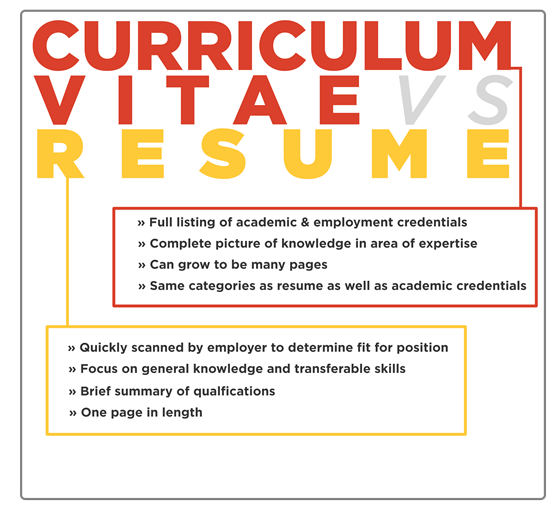The main differences between a CV and a resume are: 1) the purpose of the two documents is slightly different and 2) the level of detail is different.
Understanding the Difference Between a CV and a Resume

A resume is meant to present a brief summary of your most important qualifications and pertinent accomplishments relative to an employment position being pursued. Employers outside of academia want to be able to scan a resume to quickly find information that tells them if you are a good fit for a position, and therefore, are typically limited to a few pages. They are usually more interested in your general knowledge and transferable skills then they are the in-depth knowledge you possess about a particular subject.
The purpose of a CV, on the other hand, is to provide a complete picture of the breadth and depth of knowledge in one or more areas of expertise. It includes some of the same general categories of information as a resume, but it also provides a full listing of your academic credentials (e.g. research projects, grant and contact awards, teaching experiences, publications, and presentations). Your CV should also include information on your employment outside of academia, to highlight your skills, accomplishments and work ethic. Its length is not limited and a CV can grow to many pages over the course of a career.
